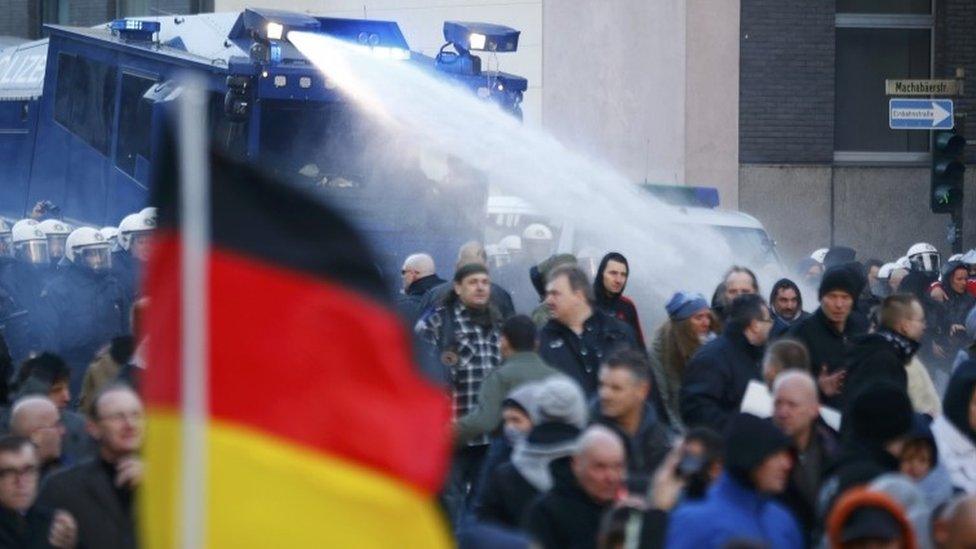Cologne attacks put spotlight on Germany's N African migrants
- Published
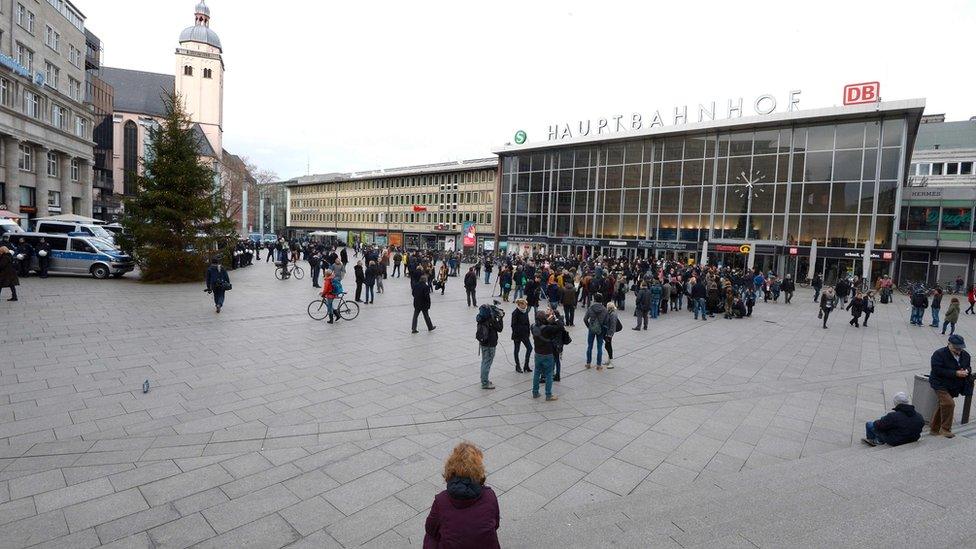
More than 560 complaints have been made by women of attacks around the station and 45% were of a sexual nature
Among the tourists and commuters around Cologne's main railway station there is the frequent fluorescent flash of a police uniform. Security is tight here after the attacks here on New Year's Eve.
I watched officers surround a scruffily dressed, unshaven man and, unimpressed by the passport he showed them, sternly usher him into a police car.
Police haven't yet charged anyone over the hundreds of reported robberies and sexual assaults in the city.
The state prosecutor says they now have 12 suspects, five of whom are in custody. They describe the suspects as being of North African descent.
In the past few days, officers have been more specific, saying that many of the men are of Algerian or Moroccan descent.
One senior officer told me they're relying on mobile phone footage taken that night to identify the perpetrators.
But Ralf Jaeger, the interior minister for the region, has gone further, saying the perpetrators are "almost exclusively" migrants. Mr Jaeger added that there are likely to have been asylum seekers among their number.
He and the police seem to be basing their conclusions on footage from the night and statements given by victims.

More on Cologne assaults

One young woman told me she was surrounded and then assaulted by a group of 20 or 30 men who looked "Arabic". They appeared to be in their thirties and forties, she said. She didn't understand the language they spoke.
All of this is fuel to the fire for those who believe Chancellor Angela Merkel's open door refugee policy has not only failed but that its putting German citizens at risk.
According to official government estimates, 1.1 million people arrived here last year seeking asylum.
Mrs Merkel had only just managed to reassure critics within her own party that Germany could manage such high numbers of people seeking asylum in country. Now she is under pressure again from those in her Bavarian sister party, who are demanding a cap on migrants.
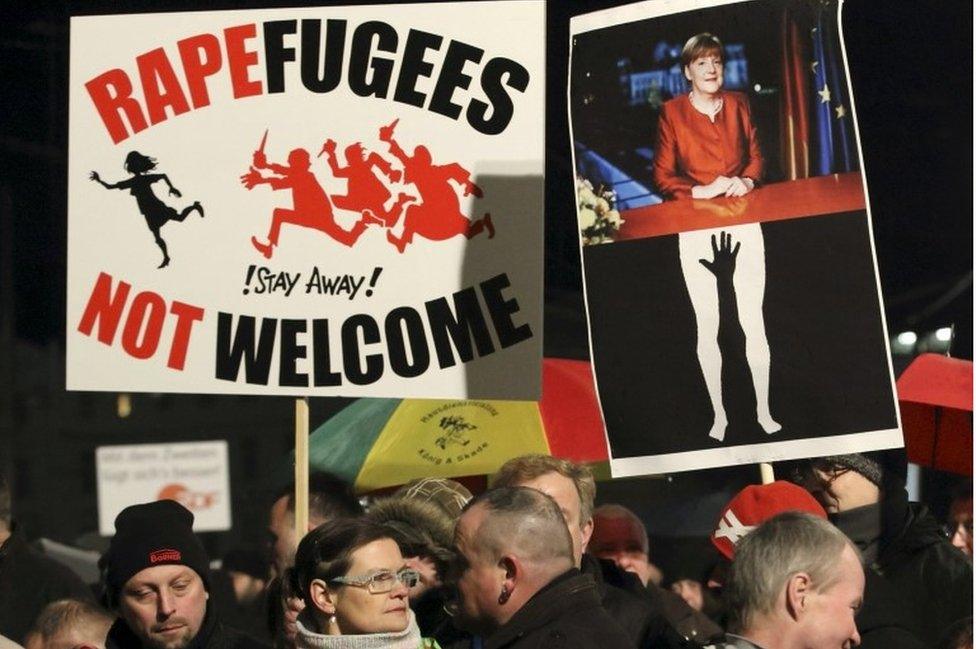
Right-wing activists accuse Chancellor Merkel of putting women at risk by opening Germany's doors to migrants
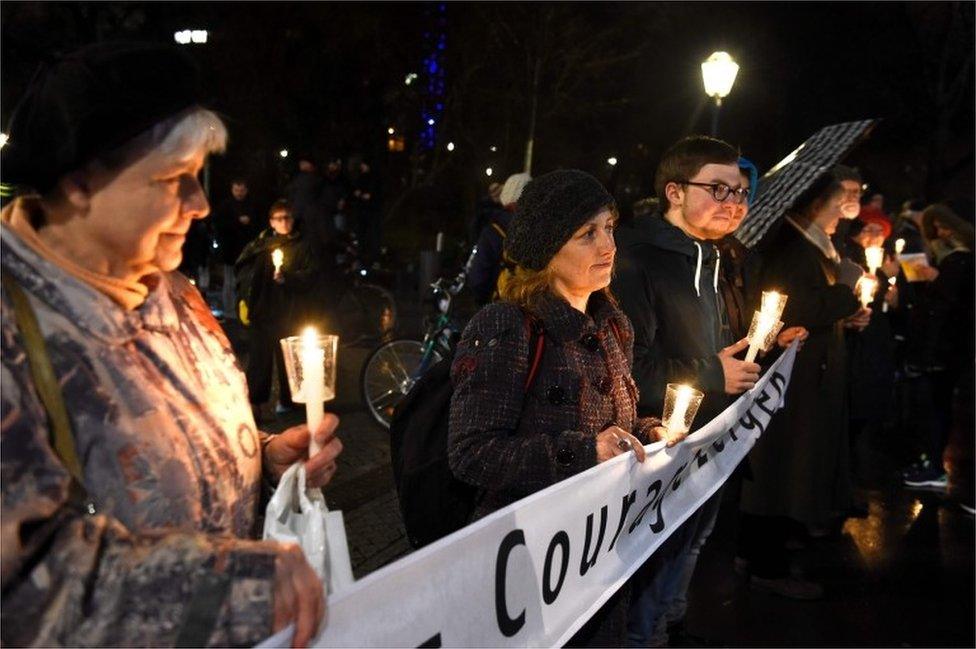
Left-wing protesters, who fear creeping Islamophobia, held a counter-demonstration in Leipzig on Monday
So her response to the attacks matters.
Her government has announced its first practical reaction - ministers have agreed a new law (which must now be approved by the German parliament) to make it easier to deport asylum seekers who commit crimes on German soil.
The changes to the law would also lower the threshold for deporting a refugee to a crime that results in a one-year prison sentence.
As a re-invigorated national debate about immigration rages on, there are fears about reprisals against the thousands of refugees who live in the city.
I came across a group of young Syrian men handing out leaflets in front of the railway station.
They were, they told me, trying to reassure women in Cologne that they too were horrified by the attacks and that they would do anything to help the country that had given them shelter from the war they had left behind.
They had trouble convincing one middle-aged woman. "I hope you mean it," she said. "How would you react if an Arab woman in a head scarf was groped by European men?"
She stalked off towards the railway station, past the police officers and past flowers left on the cathedral steps for the victims of a spate of attacks which may have profound consequences for this country.

New Year's Eve in Cologne: Timeline as reported by police

More than 550 attacks, 45% of them sex offences, were carried out on New Year's Eve
21:00: 400-500 men of migrant background, some very drunk, gather outside station and on steps of Cologne Cathedral and let off fireworks in crowd. Those involved described as north-African/Arab
22:00 Victims say spate of robberies and sexual assaults starts, including rape; earliest attack reported at 19:00
22:25 Police send 10 officers to station area
22:50 More police (83 in total) sent to boost presence and another large group of males spotted inside the station
23:00 Crowd on square and cathedral steps swells to 1,000-1,500; flares thrown at square from cathedral area
23:00 Police say unaware of sex attacks because of large crowd
23:15 Commanding officer decides to clear area - evacuation starts 20 mins later but no more police drafted in
00:27 Police allow people returning from city fireworks display to return home
Victims say sexual attacks and thefts continue throughout the night in area and streets around station
00:50 Duty officers have first alert from woman of sexual assault and then discover large number of victims at police station
01:20 Police at Cologne station told to prevent crimes; women are urged to be careful
04:00 Tension finally eases
- Published11 January 2016
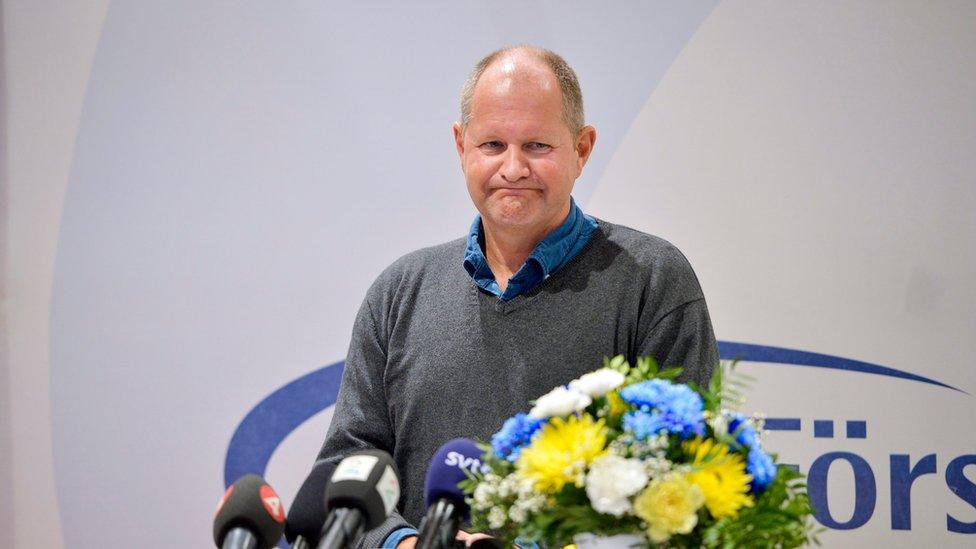
- Published9 January 2016
